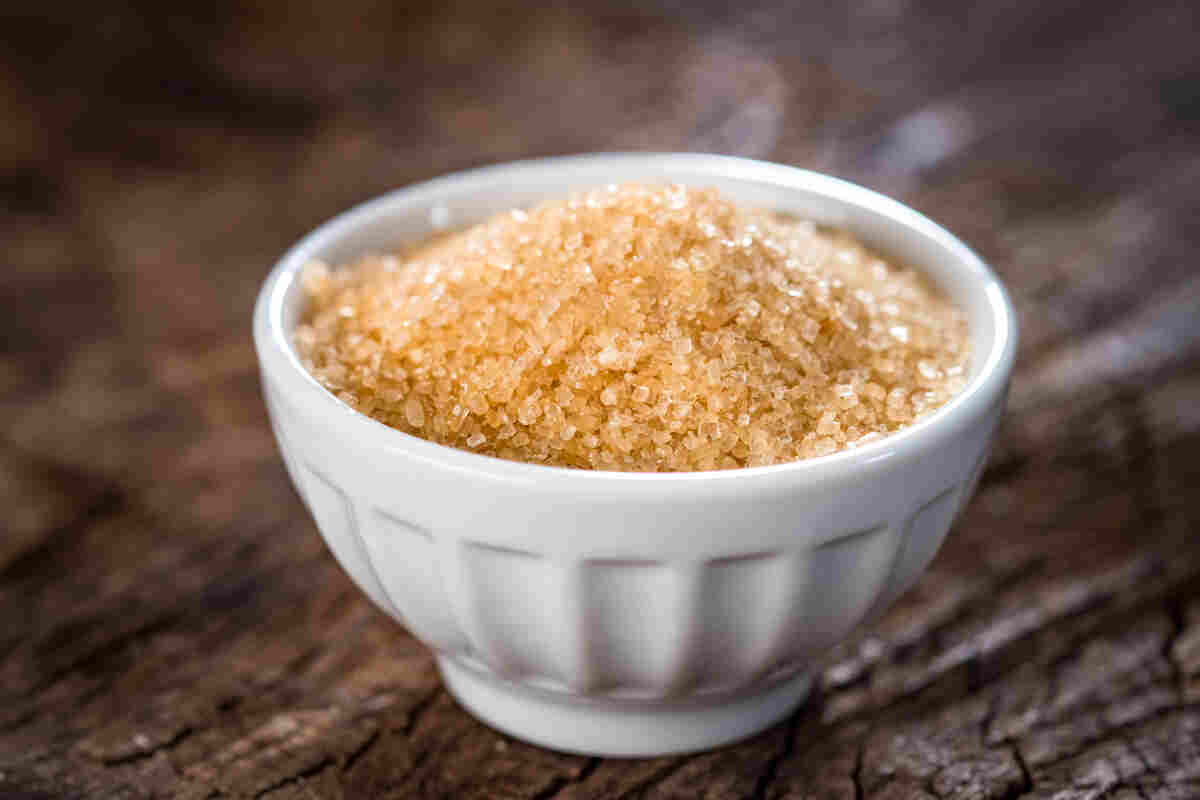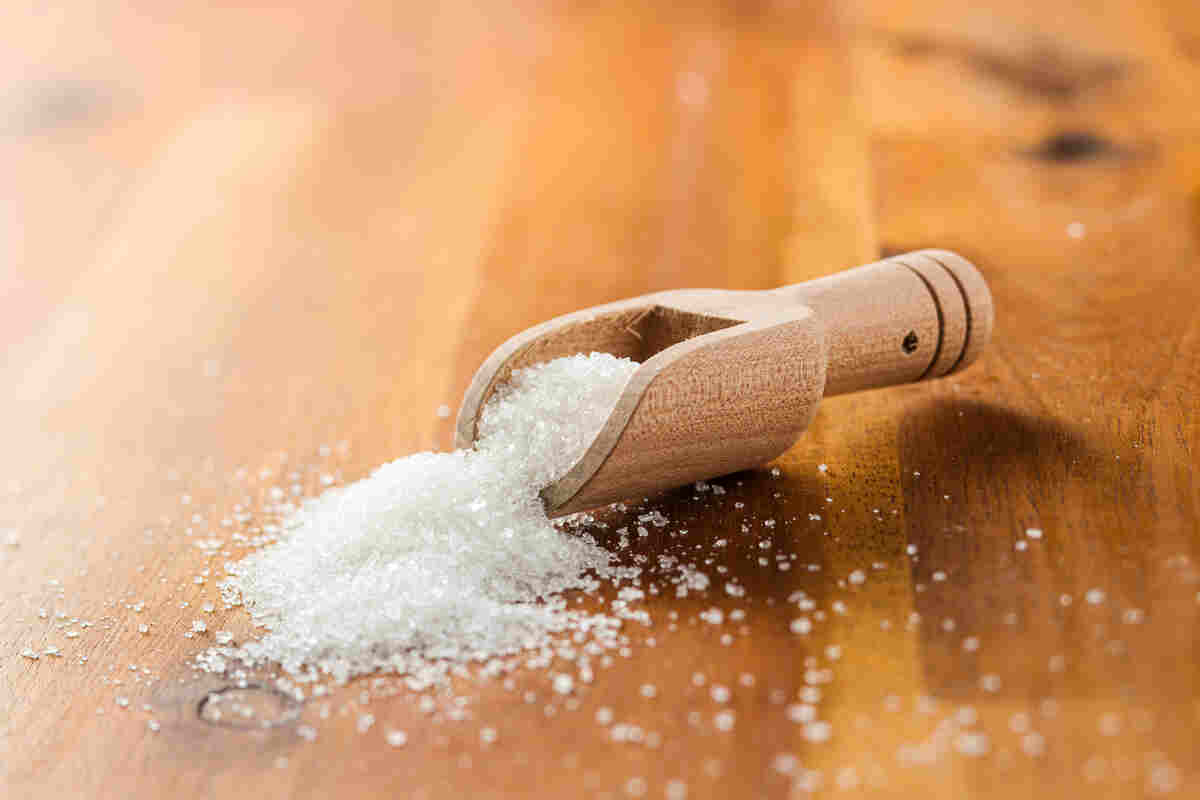Last Updated on August 2, 2023 by Shabnam Sengupta
Brown Sugar vs White Sugar! This is one thing that pauses you for a second or two every time you go to a coffee shop to get a nice and refreshing coffee for yourself, isn’t it? Let’s break down the health benefits and other aspects of these two sugars for you, so that next time you find yourself choosing between the two, you’ll have a better idea about what suits you.
Table sugar, the household sweetener found in almost every pantry, comes in various forms, each with its distinct characteristics and uses. Two commonly used types are brown sugar and white sugar. While they share a common source — sugarcane or sugar beets — their production processes and nutritional profiles differ significantly. In this comprehensive article, we will break down brown sugar vs white sugar. We will explore the differences between them, their health benefits, potential side effects, production methods, and the various types found in India.
How are white sugar and brown sugar produced?
Brown sugar

Brown sugar is generally produced by adding molasses back into refined white sugar. During the refining process, sugarcane juice produces raw sugar, which still contains some molasses. Brown sugar is thus made by adding the retained molasses to the raw sugar, resulting in its characteristic brown colour and moist texture. The amount of molasses added determines the darkness and flavour profile of brown sugar.
White sugar

During the extensive refining process, manufacturers boil and filter sugarcane juice or sugar beet juice multiple times to eliminate impurities from them, resulting in the creation of crystallized, granulated white sugar. The end product boasts a uniform texture and pure sweetness.
What is the difference between brown and white sugar?
The primary difference between white and brown sugar lies in the presence of molasses, which imparts brown sugar with its characteristic colour, flavour, and moisture.
How many calories are in brown sugar and white sugar?
White sugar and brown sugar have nearly identical calorie content. Brown sugar possesses 380 calories per 100 grams, whereas white sugar contains 387 calories per 100 grams.
Nutritional difference between white sugar & brown sugar
| Nutrient | Brown Sugar (100g) | White Sugar (100g) |
| Calories | 380 kcal | 387 kcal |
| Carbohydrates | 98.09g | 99.98g |
| Sugars | 97.05g | 99.91g |
| Fibre | 0g | 0g |
| Protein | 0g | 0g |
| Fat | 0g | 0g |
| Calcium | 83mg | 1mg |
| Iron | 0.54mg | 0.03mg |
| Potassium | 133 mg | 2mg |
| Magnesium | 29mg | 0mg |
Is brown sugar better than white sugar?
Health benefits of brown sugar
- Molasses Content: Brown sugar’s molasses content provides it with a slightly lower caloric value compared to white sugar. Additionally, the presence of molasses may result in a slower spike in blood sugar levels, making it a slightly better option for those monitoring their blood glucose.
- Trace Minerals: Although the amounts are not substantial, brown sugar does contain some trace minerals, which contribute negligibly to the overall nutrient intake.
Health benefits of white sugar
It is important to note that white sugar does not offer any specific health benefits beyond providing a quick source of energy. As a refined sugar, it lacks essential nutrients and minerals.
Brown sugar is not inherently better than white sugar in terms of its benefits. Both have similar caloric content and provide sweetness. However, brown sugar contains molasses, which adds a slight flavour and some minerals, while white sugar is more refined. The choice depends on the flavour and intended use.
What are the different types of sugar? Brown sugar vs White sugar
Brown sugar
- Light brown sugar: Perfect for baked goods and sauces.
- Dark brown sugar: With a deeper colour and molasses flavour, it’s great for gingerbread, baked beans, and barbecued dishes.
- Muscovado sugar: Unrefined cane sugar with natural molasses, offering coarser, stickier crystals for recipes needing strong molasses flavour.
- Turbinado sugar: Sugar with a mild taste, it’s a partially processed sugar and has larger crystals, making it suitable for toppings rather than baking.
White sugar
- Granulated sugar: This common type of sugar is used in sugar bowls for hot drinks or baking purposes.
- Superfine or caster sugar: With smaller crystals, it’s ideal for delicate desserts like mousse and puddings.
- Confectioners or powdered sugar: Made by grinding and sifting sugar, it is used in sweets, icing, and whipped cream.
- Fruit sugar: This has uniform, smaller crystals, making it suitable for dry mixes, pudding desserts, and powdered drinks.
What is the role of sugar in cookery?
White sugar culinary uses
- Baking: White sugar is a staple in baking, used to sweeten cakes, cookies, muffins, and other baked goods.
- Beverages: It dissolves easily in hot and cold beverages, adding sweetness to coffee, tea, and smoothies.
- Dessert Toppings: People use white sugar to create caramel and to make crunchy toppings for desserts like crème brûlée.
- Preserves and Jams: It acts as a preservative and helps set the texture of homemade jams and jellies.
- Frostings and Icings: White sugar is a key ingredient in making frostings, icings, and glazes for cakes and pastries.
Brown sugar culinary uses
- Baking: Brown sugar adds moisture and a subtle caramel flavour to baked goods like cookies, brownies, and muffins.
- Barbecue Sauces: Its rich flavour makes it an excellent component in homemade barbecue sauces and marinades.
- Sweet and Savoury Dishes: One can use brown to balance flavours in savoury dishes like glazed ham or sweet and sour chicken.
- Caramel and Toffee: Its molasses content makes it perfect for making caramel sauce and toffee.
- Beverages: Brown sugar adds depth to hot beverages like spiced lattes and mulled wine.
- Fruit Dishes: It enhances the natural sweetness of fruits when used in compotes, poached fruits, and fruit crumbles.
What are the risk factors of eating too much sugar?

Consuming excessive amounts of both white sugar and brown sugar can pose several health risks:
- Weight Gain and Obesity
- Type 2 Diabetes
- Dental Issue
- Heart Health
- Metabolic Syndrome
- Liver Health
- Inflammation
- Gastrointestinal Issue
It’s worth noting that while some consider brown sugar healthier due to its molasses content and potential trace minerals, the overall health risks of excessive sugar consumption are applicable to both white and brown sugar. To maintain a balanced and healthy diet, it’s advisable to limit added sugar intake and prioritise whole, nutrient-rich foods.
What are the safe alternatives to sugar?
Stevia
Derived from the leaves of the Stevia plant, stevia is a natural sweetener that is virtually calorie-free and does not raise blood sugar levels.
Erythritol
People commonly use this sugar alcohol as a sugar substitute. It has very few calories and does not significantly affect blood sugar levels. It is often used in baking and cooking.
Xylitol
Another sugar alcohol, xylitol is often used as a sugar substitute in gums, candies, and oral care products. It has a similar sweetness to sugar and a minimal impact on blood sugar.
Monk fruit extract
Monk fruit sweetener comes from monk fruit and contains compounds that provide sweetness without calories. It’s a good option for those looking to avoid sugar.
Coconut sugar
Made from the sap of the coconut tree, coconut sugar has a lower glycemic index compared to regular sugar and retains some nutrients found in the coconut sap.
It’s important to note that while these alternatives can be used to reduce sugar intake and its impact on blood sugar, moderation is still key. Always check product labels for any potential additives and use these sweeteners in a balanced and sensible manner as part of a healthy diet. Additionally, individual preferences and dietary needs may vary, so it’s a good idea to consult with a healthcare professional or registered dietitian before making significant changes to your diet.
FAQ on Brown Sugar vs White Sugar
Should I use brown sugar or white sugar if I have a heart condition?
It's generally recommended to limit overall sugar intake. But if you're choosing between brown and white sugar, brown sugar may be slightly better due to its slightly higher mineral content.
Should I use brown sugar or white sugar if I have diabetes?
It's better to use brown sugar in moderation as it may have a slightly lower glycemic index compared to white sugar. However, it's important to manage your overall carbohydrate intake and monitor your blood sugar levels regardless of the type of sugar you choose.
Should I use brown sugar or white sugar if I have high cholesterol?
Both brown and white sugar contains slightly different but almost the same level of calories. Therefore, moderation is the key to using brown or white sugar.
Should I use brown sugar or white sugar if I have kidney problems?
If you have a kidney problem, it's advisable to use white sugar in moderation. This is because brown sugar contains minerals that could affect your kidneys.
Should I use brown sugar or white sugar if I have liver problems?
If you have a liver problem, it's best to avoid excessive sugar intake altogether.
Should I use brown sugar or white sugar if my bones are weak?
Neither brown nor white sugar directly affects bone health. Focus on calcium-rich foods and a balanced diet for bone support in case you have weak bones.
Disclaimer: Medical Science is an ever evolving field. We strive to keep this page updated. In case you notice any discrepancy in the content, please inform us at [email protected]. You can futher read our Correction Policy here. Never disregard professional medical advice or delay seeking medical treatment because of something you have read on or accessed through this website or it's social media channels. Read our Full Disclaimer Here for further information.

